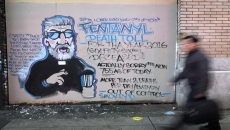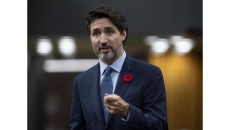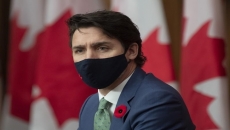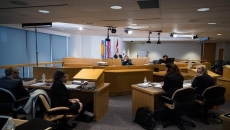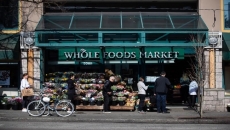Canada reached a troubling milestone on Monday, surpassing 300,000 total COVID cases since the pandemic began earlier this year, and health experts are alarmed — but not surprised — by the rapid growth we've seen over the last few weeks.
The marker comes less than a month after the country reached 200,000 overall cases on Oct. 19. It took about four months for Canada to leap from 100,000 to 200,000, suggesting that even as some cases are being resolved, the spread is quickening.
Total COVID-19 cases are different from confirmed active cases. Canada had roughly 50,000 active cases as of Monday afternoon, while nearly 240,000 had recovered and more than 11,000 have died.
Caroline Colijn, an infectious disease modeller and epidemiologist with Simon Fraser University, said the growth trajectory is worrying.
"We've seen this with Europe and the U.K. and U.S., and now across Canada — the pattern is very consistent," she said.
"This is something that can overwhelm the health-care systems in western democracies. And it can do it very rapidly."
Colijn projected Canada would reach the 400,000 total case milestone by early December, if the current trajectory holds up.
Canada was averaging about 4,500 new daily cases over the past week, and Dr. Theresa Tam, Canada's chief medical officer, said Friday that daily case counts may climb to more than 10,000 by early December.
Dr. Ilan Schwartz, an infectious disease expert with the University of Alberta, says "widespread restrictions" are needed in order to prevent the skyrocketing spike projected by Colijn and other COVID modellers.
He said government and public health policymakers need to put forward clear, concise and aggressive measures, and continue to "emphasize that people really need to change their plans and minimize their in-person interactions."
"Because it's really only a matter of time — and we're talking weeks, not months — before ICU's become totally overwhelmed and are unable to provide even the most basic care to people," he added.
While the jump from 100,000 total cases to 200,000 took place from June to October, a period that coincided with the large-scale re-opening of businesses and schools nationwide, Colijn said the more recent accelerated spike may signify more.
She believes some people became complacent with pandemic restrictions in the final weeks of summer, and so they worried less when cases began rising in the fall among younger people who generally don't get very sick.
The problem, however, is that COVID continued to spread, infecting more vulnerable people and putting hospitals in danger of reaching full capacities.
"People really relaxed, they went indoors and so that just accelerated the spread," she said.
Some Canadians' opinions on the dangers of COVID may be tainted by how relatively well the country handled the first wave, added Schwartz.
People were cautioned about overextending hospital resources back in March, and when the system wasn't strained to the extent experts anticipated — largely because of early lockdown measures — some may have developed a false sense of security.
"It's like Y2K, where we were told something big would happen and it didn't," Schwartz said.
"But seeing what's going on now, with hospitals filling up across the country, ICU (admission) going up, and the rate of new infections continuing to accelerate, it's extremely troublesome... And it is quite clear this (perspective) needs to change very rapidly."
Dr. Andrew Boozary, the executive director of health and social policy at the University Health Network, says other factors contributing to community transmission need to be addressed.
It can be hard for someone to obey stay-at-home orders if they don't have access to stable housing, he said. A low-income worker without paid sick leave, for example, may not be able to self-isolate with symptoms if it means missing out on a paycheck.
"We need to ensure that social policy protections can take place for prevention," Boozary said.
"If we don't do all these things, and do them in a way that's coordinated, we'll continue to keep lapsing."
Canadians are entering what experts call a crucial period of the pandemic, with the Christmas holidays and winter season only six weeks away.
They say the escalating COVID-19 growth rate needs to be slowed in order to avoid reaching more grim milestones in the near future.
"Many of us have been worried about winter because of the inability of people to be outside and what that can mean," Boozary said.
"This is not the place we want to be."
Photo courtesy of Istock.

